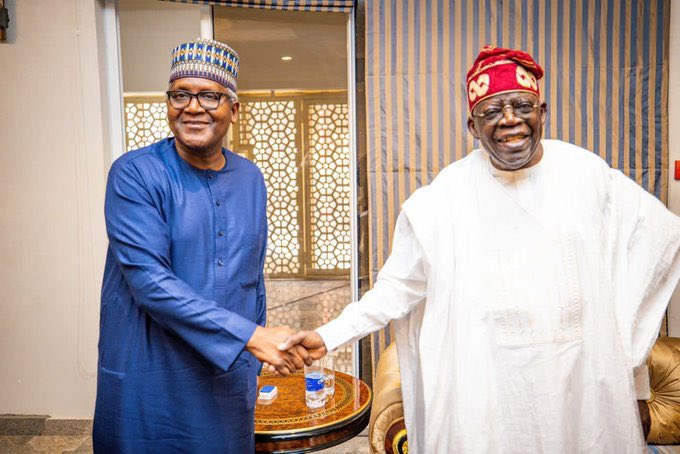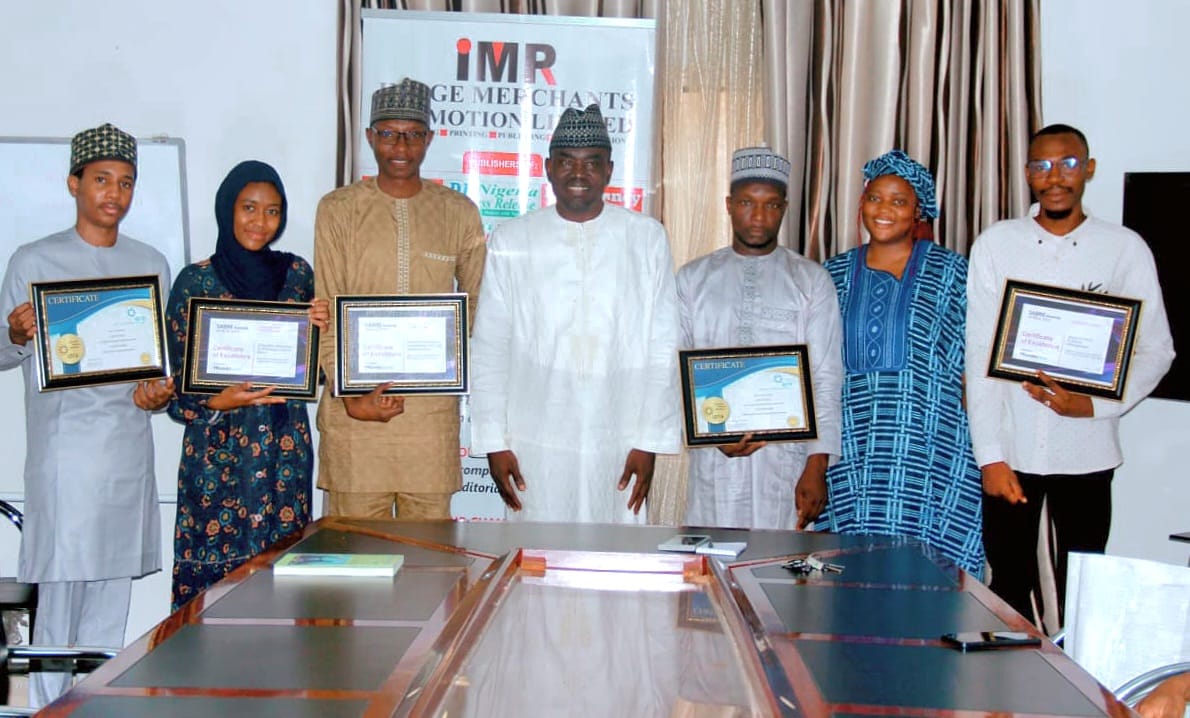Tinubu’s Cocktail With Dangote And China In The Mix
BY KUNLE OYATOMI

Fast-moving events in Nigeria under the administration of Bola Ahmed Tinubu have reminded me of an editor who worked in a popular TV station in Lagos, the nation’s commercial hub.
His experience was that as he and his editorial group processed a breaking story to package for the major evening bulletin, some bigger report would be wired to him, which would seem to displace the one receiving the attention of his team.
The situation used to throw them into unending questions and confusion. Which story should give way for the other? Which should take the centre stage of the headline? Could one be discarded altogether, even when thorough preparation had already been made for analytical treatment, with a well-known commentator having been requested to be present in the studio during the live newscast?
Sometimes such arrangements had to be cancelled if the report no longer deserved such Grade A attention, if a ‘hotter’ story broke. Indeed, most of these big events later became small as the day wore on drawing close to broadcast time.
That was the dilemma I ran into as I undertook random musings on Tinubu’s presidency in recent weeks. It’s been a helluva time watching notable events fall over themselves to catch our attention.
As you take note of some news announcing one huge achievement of the federal authorities, another crops up to distract you or abort your excitement. However, I haven’t allowed this to happen; you do so at the risk of not appreciating the steady socio-economic strides so far recorded by Tinubu.
Of course, this is not to say we’re out of the woods. Not at all. But the President is leading the nation where it won’t experience again the conditions that brought upon us the dire straits in which we found ourselves before his advent.
Let me show you some of these ground breaking developments.
There was the good news that Nigeria’s Gross Domestic Product, GDP, figures as released by the National Bureau of Statistics, NBS, had demonstrated a healthy economy under Tinubu.
The stats speak of a ‘GDP figure of Q2 2024 showing a better year-on-year growth of 3.19% than the 2.51% figure of the same period in 2023’. A study of the specifics reveals that this turn of progress ‘was fuelled largely by the good performance of the services sector, which recorded a growth of 3.79% and contributed 58.76% to the aggregate GDP as well as the Industry sector which grew by 3.53%, (representing) a massive improvement from -1.94% in the second quarter of 2023’.
Now, while we were celebrating this as a positive pointer to President Tinubu’s resolve to take our economy off oil and give us a modern, comprehensive and substantive one, there came reports that the government was taking the bull by the horns to crash the prices of staple foods. This matter of prices is a recurring sore point, given the fact that with inflation running into a scary double digit mode, the best news the authorities could give the people is a tough move to bring prices down and assure them that hunger would not compound the problems on the ground. So it was a thing of joy that Tinubus’s government was addressing this biting concern.
But again while we were thanking God for this cheering news, we were told by the media that within one year of the rule of Tinubu, some four million out-of-school children have been returned to formal classroom education. This reduces the distressing figure of over 20 million school-age kids said to be aimlessly roaming our streets. They are easy recruits for anti-social activities at the hands of unscrupulous politicians. Therefore it’s big news for strategic reasons: dealing with what could constitute a time bomb in the future is a prudent approach to taming insecurity, now and in the years ahead.
And talking about national security, the Police uncovered a plot by local and international conspirators to subvert the integrity of our burgeoning democracy. The Force, through its spokesman, Assistant Commissioner of Police, Muyiwa Adejobi, said it had undertaken ‘a comprehensive investigation into the activities of a foreign national and subversive elements plotting to undermine the democratically government in Nigeria through unconstitutional regime change and orchestrating violence across the country’. There’s massive hunt for these haters of the Nigerian state and its citizens. A proactive administration begets a proactive Police Force to protect the gains of democracy.
Still in the pleasant cocktail of events these past few weeks of the Tinubu Presidency is the comforting development in the oil sector: Aliko Dangote’s 650,000-capacity oil refinery in Lagos has commenced petrol production.
Dangote, the President of the group, says the supply of the local level is set to change the country‘s energy landscape and meet the demands of not just Nigeria, but the entire sub-Saharan region of Africa.
Experts say this will bring much-needed relief to Nigerians currently experiencing grinding fuel scarcity nationwide. There is also the prospect of reducing the pressures on our foreign liquidity. This also saves us from continuing to bear the label of the oil-rich country that cannot give its people petrol and has to import it. Under Tinubu, we are casting off that embarrassing tag.
Lastly in my random musings, I turn my attention to China. In the period I’m reviewing, Tinubu visited the Asian economic and military superpower, for a meeting of two giants.
Among the achievements of the memorable trip was the elevation of Nigeria-China ties to that of a ‘comprehensive strategic partnership’. This, according to Tinubu, ‘should result in robust development, stability, and security in the West African sub-region…’ This is very crucial, the leader of Africa’s most populous nation adds.
Analysts have opined that China being a member of the BRICS might persuade Tinubu to draw Nigeria into the group, giving our country’s growing international influence lately. This is not far-fetched. After all, it is claimed that international diplomacy is an extension of your domestic politics. If you’re doing well on the home front, you must also flex your muscles on the global scale.
•Oyatomi Esq. a member of Independent Media and Policy Initiative, IMPI, is based in Abuja











